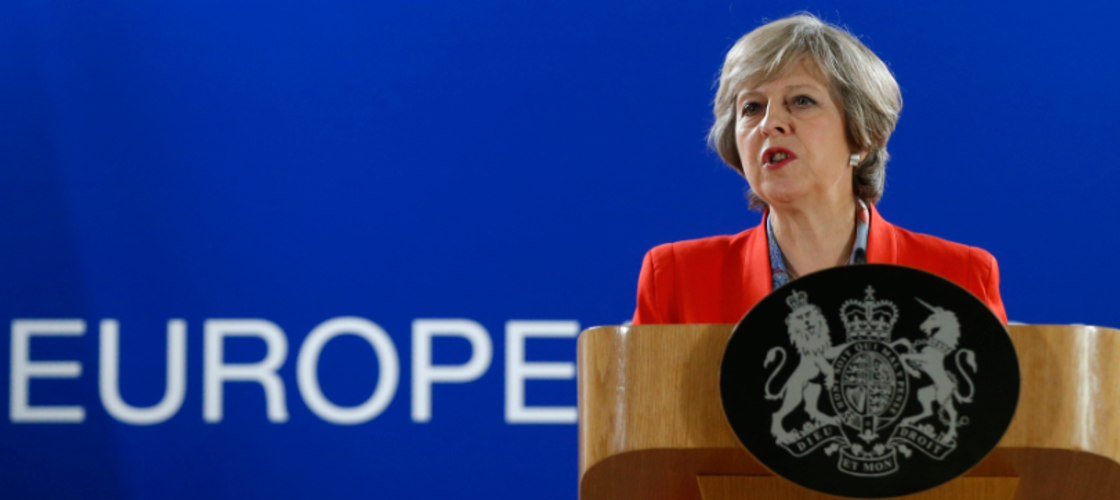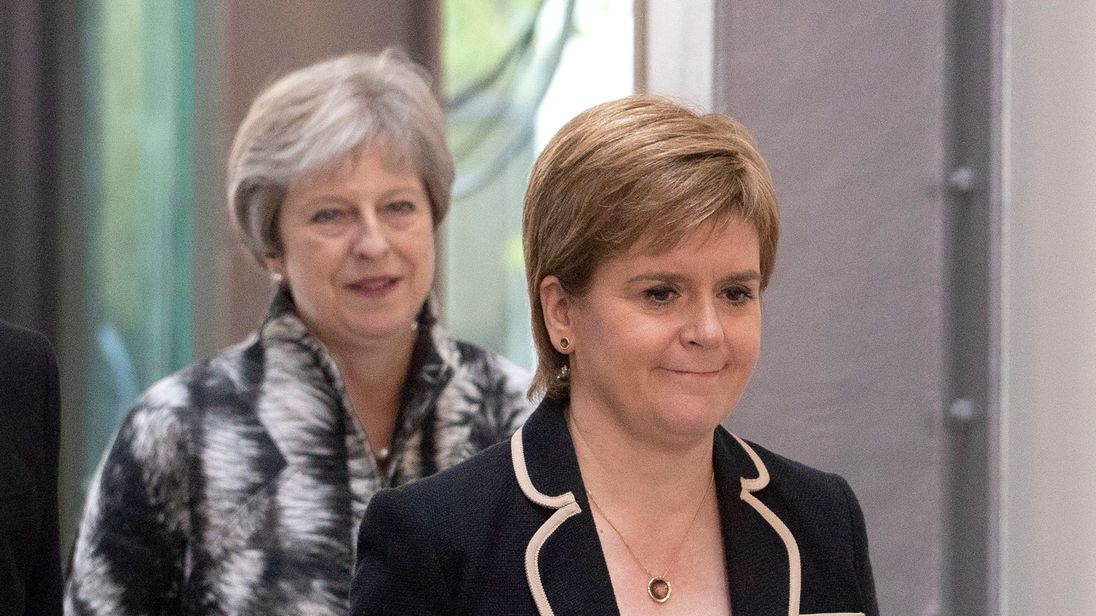 |
| Theresa May's challenges aren't restricted to the devolved nations (Image: PoliticsHome.com) |
Leaving the European Union would result in the UK being £394 million better off, every week. This is apparently how much Westminster pays to Brussels for EU membership. If this figure is actually true, it gives the British government a perfect opportunity to layout plans in how they'd spend this huge chunk of money, benefitting the disadvantaged and disengaged members of society.
Unfortunately, Prime Minister Theresa May has already set out her plans to spend, spend, spend and I strongly believe it's a wasted opportunity. She's decided to go the "Boris route" and say all of this dosh is off to the NHS.
Don't get me wrong, I strongly encourage effective funding towards our Health Service. As I've argued in the past however, throwing money at problems NHS face won't solve the pressures they face on a daily basis. In my view, current investment focus should go towards frontline recruitment, as well as innovation, research and hospital building maintenance - and anything to avoid patients being treated in corridors. At the moment, funding across their board is disproportionate, and rejigging is the answer to NHS's conundrum as opposed to adding to their kitty more than we're already doing. An extra £394 million a week won't make the NHS a service that would satisfy everyone.
So where should that money go? Naturally, it needs to go towards the so-called "divorce bill", which approximates to £39 billion. Naturally, it needs to go towards cutting the gross national debt, currently at £1.763 trillion. In addition to that, the money spent must be visible so the public can see how impactful leaving the European Union is - it is the least this government can do.
 |
| EU funds more than car parks (Image: WalesOnline) |
Ultimately, the money should go directly to communities across the devolved nations, in addition to the Midlands and north of England. These are the key areas that rely so much of funds from Europe, the moment the UK leaves the Union, many community centres, art centres, parks, employment schemes, youth centres and libraries risk being closed down. These towns will miss out on tonnes of positive investment and too many people will feel the pinch as a consequence.
Believe it or not, the EU invests around £4.5 billion every year in projects and centres across the UK. Imagine all these funds vanishing and the government not planning to ensure these continue as normal? These projects and centres are designed to benefit every generation, putting young people into jobs and away from trouble, and the elderly away from loneliness and thrive regardless of their age. These projects and centres need protection and support, otherwise they'll be left behind and rely on money from the Lottery and local government - the latter of which having extremely limited resources at present.
2019 will pose poignant challenges and changes never seen in the UK since the last century. Whether the country actually leaves the EU or not (anything can happen), a government priority is to limit the revolt we currently see. We know that ditching European Union membership will impact on the economy and alter the way our home and foreign policies function in modern Britain. This should be Theresa May's chance to bring the country together and set out the true benefits of the 'deal' she helped set out with Brussels, which quite honestly, has something both sides of the debate can take positives from, as long as they stop criticising it for the sake of strengthening their personal agenda.
Right now, this government's legacy is centred on this exit. They can still avoid this by connecting with Wales, Scotland, Northern Ireland and the most ignored parts of England - and do so much more than just visit these places and say 'like the deal or else', like she's done this week. Westminster will have a blank canvas with the Welsh government when First Minister Carwyn Jones is no more from 11th December 2018. In Northern Ireland, May cannot allow herself to be downed by the DUP who are incapable of holding a government of their own.
 |
| Nicola Sturgeon with May (Image: Sky News) |
In Scotland, May faces a tougher challenge because their First Minister, Nicola Sturgeon, will be in power until at least 2021, unless she faces a personal or professional crises before then. Over the next two years, as they have done for many moons, Sturgeon's SNP will continue their agenda against Westminster, and will use the Scottish result in 2016's EU referendum against May - the country voted convincingly Remain. It will be up to the ever-so-popular Ruth Davidson to choose whether she'll be an ally of the British government, which could make May's challenge even greater.
May's biggest challenge, however, is satisfying north of England. The majority there voted Leave with, presumably, the pretence that the result wouldn't affect them directly. The moment they realise more centres and libraries close down, and the government not doing enough to replace said EU funding with their own, that will be the difference between May's cabinet and one led by Labour, whether it's Jeremy Corbyn as Prime Minister or his successor. And this choice will linger across the minds of millions across the country if the government's plans go astray.
Comments
Post a Comment